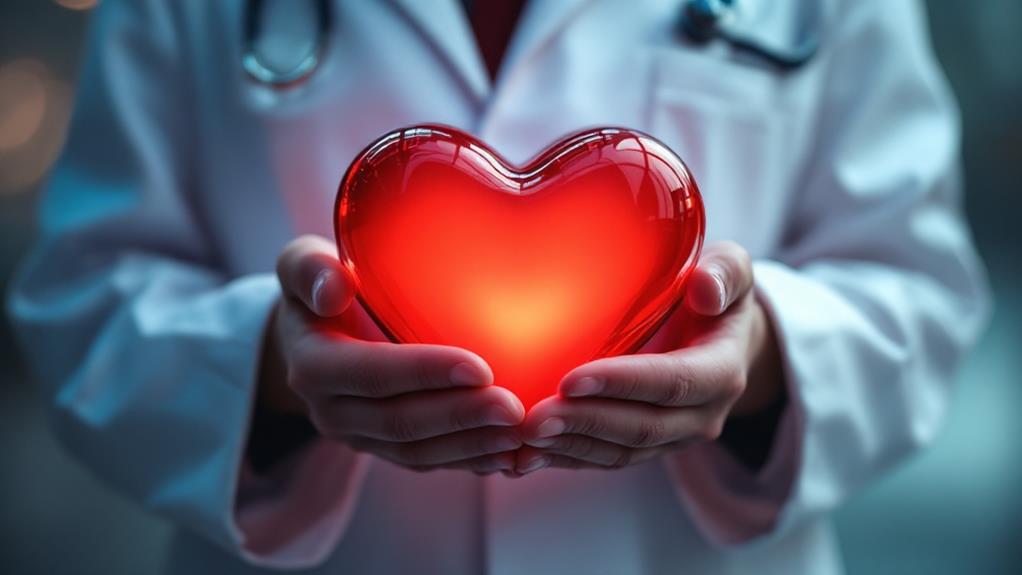How Random Acts of Kindness Can Help Combat Loneliness

Random acts of kindness can be powerful tools in combating loneliness. By engaging in small, thoughtful gestures, you're creating opportunities for genuine human connection. These acts release oxytocin, reducing stress and nurturing empathy. They're also contagious, inspiring others to pay it forward and creating a ripple effect of compassion. In our contemporary era, kindness can bridge the gap between online and face-to-face interactions. By cultivating a kindness mindset, you're not only improving your own well-being but also strengthening social bonds in your community. The impact of these simple acts extends far beyond the moment, offering a potent antidote to isolation and loneliness.
Understanding the Loneliness Epidemic
In the midst of our hyper-connected world, an epidemic of loneliness has taken root. Despite our digital connections, many people find themselves feeling isolated and disconnected from meaningful social interactions. This loneliness isn't just about being alone; it's a complex emotional state that can vastly impact your emotional well-being and physical health.
You might be surprised to learn that loneliness affects people of all ages, with a staggering 79% of young adults reporting feelings of social isolation in 2021. The COVID-19 pandemic has only intensified this issue, forcing many to retreat into remote work and limited social contact. But even before the pandemic, factors like excessive stress and a lack of genuine connections were contributing to this growing problem.
The consequences of loneliness extend far beyond just feeling sad. It can lead to decreased productivity, lower morale, and even increase your risk of heart disease, stroke, and premature death. Recognizing and acknowledging these feelings is pivotal. By normalizing conversations about loneliness, you're taking an important step towards seeking support and combating this silent epidemic.
The Science Behind Kindness
Over the past few decades, researchers have uncovered fascinating understandings into the science behind kindness. You might be surprised to learn that acts of kindness can have profound effects on both your mental and physical health.
When you perform a kind act, your brain releases oxytocin, a hormone that reduces stress and cultivates feelings of trust and empathy. This chemical reaction not only improves your social connections but also has tangible benefits for your physical health. Studies have shown that kindness can lower blood pressure, reduce inflammation, and even decrease your risk of obesity and certain cancers.
Moreover, kindness activates your brain's reward centers, leading to increased joy, gratitude, and satisfaction. It's a self-reinforcing cycle: the more kind acts you perform, the better you feel, and the more likely you are to continue being kind. This positive impact extends beyond just you, as kindness has a contagious effect in social settings. When you witness or experience kindness, you're more likely to pay it forward, creating a ripple effect of goodwill in your community.
Small Gestures, Big Impact

Three simple words can sum up the power of small gestures: little things matter. When you perform random acts of kindness, you're not just brightening someone else's day; you're also enhancing your own mood and well-being. These small, unselfish actions create meaningful social connections that can combat feelings of loneliness and isolation.
The beauty of random acts of kindness lies in their accessibility. You don't need a lot of time or money to make a difference. Holding the door open for someone, paying for a stranger's coffee, or simply offering a genuine compliment can have a substantial impact. These gestures take the focus off your own loneliness and redirect it towards making a positive impact on others.
What's more, kindness is contagious. When you perform a thoughtful act, you're not only helping the recipient but also inspiring others to follow suit. This ripple effect can create a community of caring individuals, cultivating a sense of belonging and connection. By engaging in these small acts, you're contributing to a larger movement of compassion and empathy, proving that even the smallest gestures can have a big impact on combating loneliness.
Connecting Through Random Acts
Connection lies at the heart of random acts of kindness. When you perform a random act of kindness, you're not just doing something nice; you're creating an opportunity to connect with others. These moments of genuine human interaction can be powerful antidotes to loneliness and isolation.
Kindness in the Digital Age

The technological era has altered how we connect and show kindness to one another. In today's virtual environment, social media platforms offer unique opportunities for shy, anxious, or autistic individuals to forge relationships and express themselves. However, it's essential to strike a balance between online interactions and face-to-face connections to effectively combat loneliness.
During the pandemic, social media became a lifeline for many, keeping people connected despite physical distances. Yet, excessive use can lead to negative mental health outcomes, including increased feelings of isolation and sleep deprivation. To leverage the positive aspects of digital platforms, consider practicing random acts of kindness online. Leaving thoughtful comments, reconnecting with old friends, or sharing uplifting content can have a similar effect to cognitive behavioral therapy in alleviating loneliness.
Moreover, the normalization of vulnerability and open discussions about mental health in the virtual space can help you feel less alone in your struggles. By embracing kindness in the digital era, you're not only improving your own well-being but also contributing to a more supportive online environment for others.
Overcoming Barriers to Kindness
While digital platforms offer opportunities for kindness, many people still struggle to extend compassion in their daily lives. You might find yourself hesitating to perform acts of kindness due to feelings of vulnerability or fear of rejection. It's natural to question whether your gesture is appropriate or worry about potential negative reactions.
Time constraints and hectic schedules can also make it challenging to consistently engage in kind acts. You may feel overwhelmed by your daily responsibilities, leaving little energy for compassionate gestures. Additionally, cultural and social norms that discourage openness can create barriers to expressing kindness in certain situations.
To overcome these obstacles, start by recognizing that kindness is beneficial for your health and can reduce stress levels. Build confidence by starting small and gradually increasing your acts of kindness. Set aside dedicated time for compassionate actions, making them a priority in your routine. Challenge societal norms by leading by example and creating a supportive environment that encourages kindness. Remember, overcoming inertia and establishing kindness as a habit requires conscious effort, but the rewards are well worth it for both you and those around you.
Cultivating a Kindness Mindset

Developing a kindness mindset requires intentional effort and practice. By adopting this mindset, you can reduce stress and improve your emotional well-being. Start by making small, purposeful gestures that positively impact both you and others. These random acts of kindness don't have to be grand; even simple actions can make a big difference.
When you perform kind acts, your brain releases oxytocin, promoting trust, empathy, and bonding. This neurochemical response can help combat feelings of loneliness and create a sense of purpose. By shifting your focus from personal worries to helping others, you'll find yourself less preoccupied with negative thoughts.
Remember that kindness is contagious. As you engage in acts of kindness, you'll inspire others to do the same. This ripple effect can alter your community and create a more positive environment. To cultivate a kindness mindset, make it a daily habit to look for opportunities to help others. Whether it's offering a compliment, helping a neighbor, or volunteering, each act contributes to your overall well-being and strengthens your connections with others.
Community-wide Kindness Initiatives
Increasingly, communities are recognizing the power of collective kindness through organized initiatives. You'll find many towns and cities hosting annual kindness weeks or days, encouraging residents to perform random acts of kindness. These events often utilize social media to spread awareness and inspire participation, reminding you to make eye contact and acknowledge others in your daily interactions.
Local organizations provide numerous volunteering opportunities, allowing you to engage in meaningful acts of service while connecting with like-minded individuals. You can join kindness challenges that motivate you to complete a specific number of good deeds, cultivating a spirit of compassion throughout your community.
Neighborhood kindness groups offer another avenue for involvement. You can participate in small projects like cleaning up public spaces or assisting elderly residents, strengthening social bonds in the process. Community events that celebrate and recognize kind acts serve as powerful motivators, encouraging you to continue making a positive difference in your local area.
Measuring the Effects of Kindness

Over the past decade, researchers have made notable advances in quantifying the impact of kindness on both individuals and communities. These studies reveal that performing acts of kindness can significantly improve your emotional well-being and reduce stress levels. When you brighten someone's day through a kind gesture, you're not only helping them but also activating areas of your brain associated with pleasure, social connection, and trust.
Long-term research shows that regularly engaging in kind acts leads to increased life satisfaction, positive emotions, and better self-reported health. You'll even experience physical benefits, as demonstrated by a randomized controlled trial where adults who performed acts of kindness had lower blood pressure compared to those who didn't.
The effects of kindness stem from various factors, including the release of oxytocin in your brain when you experience or witness kindness. This hormone plays an essential role in social bonding and trust. By measuring these physiological and psychological changes, scientists can now quantify how acts of kindness impact both the giver and receiver, providing concrete evidence of the power of compassion in combating loneliness and improving overall well-being.




